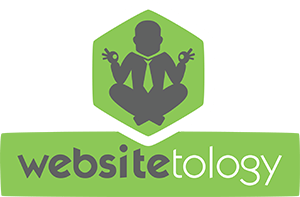We often learn more from our students than from our studies, and in the last seminar someone asked what the difference between blogs and forums.
I don’t feel that I offered the best answer, since blog posts offer a forum for discussion.
While this is simplistic: a forum is a place where a community can post and discuss things- many to many- mostly posed as short questions. A well moderated forum keeps new users from reposting the same questions and makes sure questions are framed in useful language. “Help, my blog is broken” isn’t a good forum question- “My categories in wordpress aren’t working” is a better question.
A blog is a place where a single user posts ideas- and builds a community- that may eventually add a forum to the site. WordPress allows for multiple authors, with different degrees of access, so this model can be adapted to a forum concept, but generally, blog posts are longer questions, and the tools of moderation are structured differently. The developers of WordPress have built a forum software that integrates closely with WordPress- bbPress, and over time, the functions may begin to overlap. Some blogs leave the base level of ownership as “author” allowing anyone to publish- this turns a blog into a forum.
The reality is, the difference is in the eye of the beholder. The true measurement really comes in the size and activity of the audience. A blog that is read by nobody, with few comments or trackbacks isn’t much of a forum just as a forum with no participants is really just a blog.
The thread that got this idea going is linked to below- where a bunch of academics discuss it at length- in a “forum”- I found the following bit interesting.
SCoPE: Seminars: Distinction between forums and blogs
From Formal courses: Blog protocol, Public/Private, Forums/Blogs (Long Post) by derekc on Fri Feb 16 22:24:00 2007:
1. the blog owner posts without an awareness of audience
2. the blog owner posts with an attempt to identify audience (at this stage, the poster finishes their entries with questions or invites “invisible” readers to comment)
3. the blog owner posts for a clear audience (e.g. the poster refers back to blog commentators or includes links to other blogs or sites by them)
4. a regular group of commentators is set, and dialogues take place via blog comments
5. some of these commentators start making entries (as “guest bloggers”), and each of them goes through stages #1 to #4.
6. a regular group of posters is thread, with a group voice gradually developed.
Either way, the idea of community and community generated content is key to the whole “web 2.0” experience. If your site is built for business- and you aren’t involving your customers- you won’t be in business for long. Either customers will discuss your products and services on your site- or they will do it on someone elses (including their own). Consider yourself informed and go out and let the community discussion begin.
You can come to Chicago in June for a two day conference and spend $800, or you can visit Dayton and get a day for $79 (Everything is cheaper in Dayton OH). We’re proud to have our chief Websitetologist, David Esrati be one of the featured speakers at this conference:
Web Content 2007 – Chicago Business Conference on Internet Website Content June 18 & 19
Know the State-of-the-Art in Website Content ManagementWeb Content 2007 is for business professionals involved with creating, organizing and maintaining web content. The two-day conference provides three tracks: content design and access,content development and management and emerging tools and technologies. Each track offers attendees a selection of workshops, case studies, and presentations lead by recognized Internet authorities. Attend all sessions in one track or mix-and-match sessions in any track to create a customized program. Held in an intimate setting in Downtown Chicago participation is limited. Registration is now open. Save $100 if you register before May 4, 2007.
If you don’t believe that this Websitetology thing works: think again. We’ve never met any of the people who are speaking, or contacted them- they found us, from our online presence. Same goes for clients in Minneapolis, Austin, Raleigh and Jacksonville. Using the proper Content Management System, utilizing webstats and understanding search and web 2.0 will grow your business.
We’re not a huge fan of buying keywords, but having the right keywords in your posts sure helps you get placement.
If you aren’t sure what keywords you should use, think about what you would use to find your post in Google (or Yahoo if you must) and then try them, see who pops up. But, what about the related words? That’s where the Overture Keyword selector tool comes in handy:
Overture- Keyword Selector Tool
Keyword Selector Tool• Enter a term related to your site and we will show you: Related searches that include your term
• How many times that term was searched on last month
Or you can use the Google tool:
Google AdWords: Keyword Tool
Keyword Tool
The Keyword Tool generates potential keywords for your ad campaign and reports their Google statistics, including search performance and seasonal trends. Start your search by entering your own keyword phrases or a specific URL. You can then add new keywords to the green box at the right.
Either tool should help you focus your posts for maximum web search rank.

